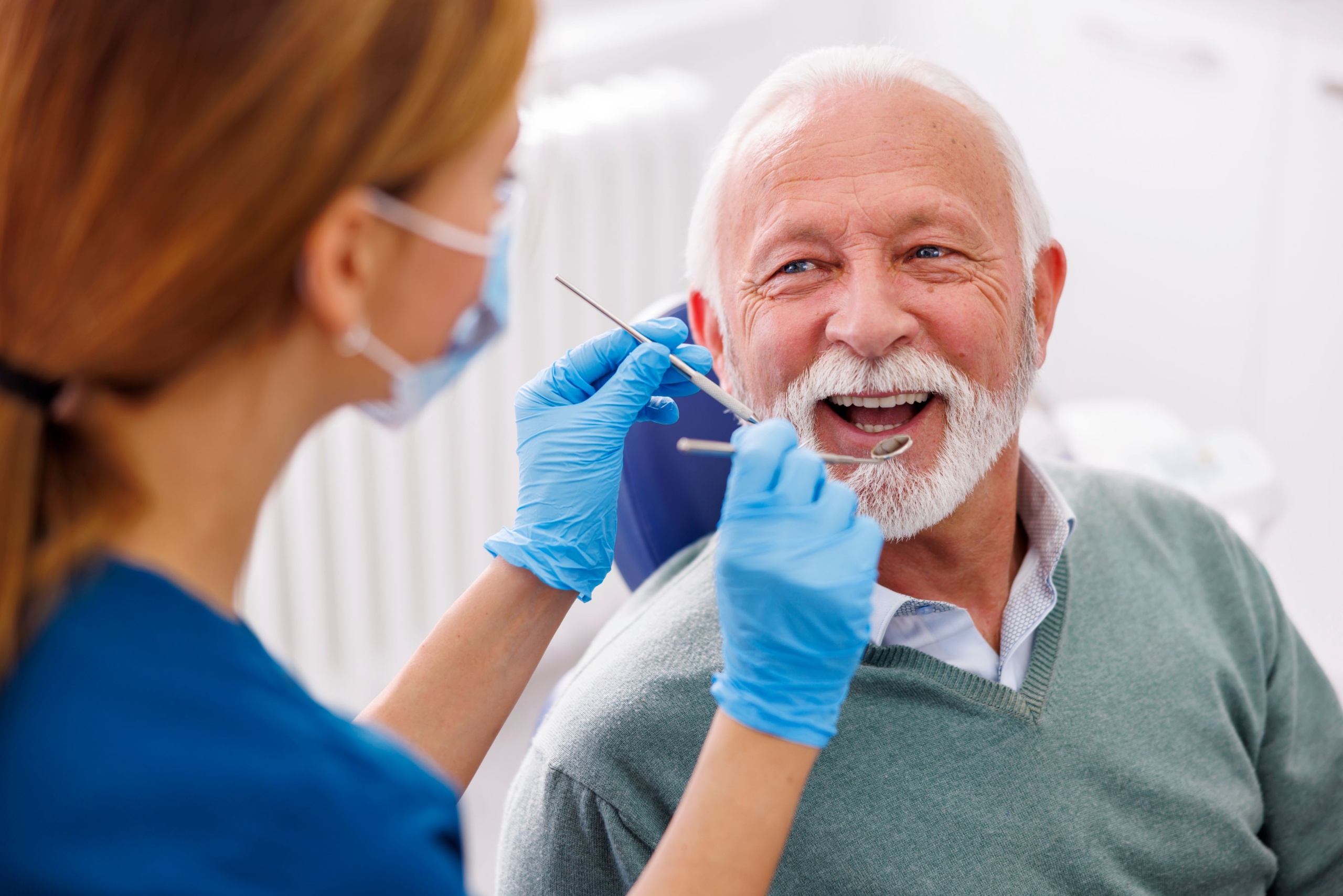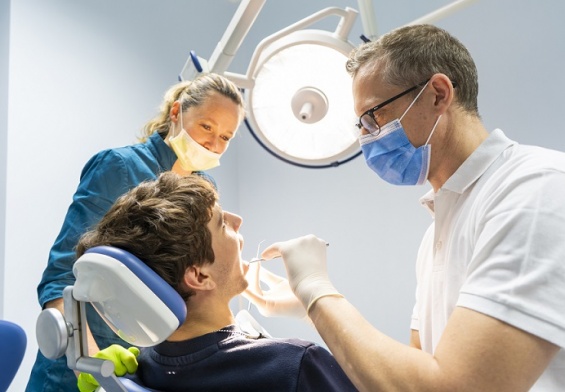Oral health is a cornerstone of overall wellness, especially for seniors. Poor oral hygiene can lead to complications like gum disease, tooth loss, and even increased risks for systemic conditions such as heart disease or diabetes. For those receiving elderly in-home care, maintaining a proper dental routine can often become challenging. This is where home caregivers play a vital role. Whether you’re providing home care in Greenville, SC, or elsewhere, these practical tips will help ensure your loved ones maintain optimal oral health.
Why Oral Hygiene is Crucial for Seniors
As we age, maintaining oral health becomes increasingly important. Seniors often face challenges such as reduced saliva production, difficulty brushing, or managing dentures. These issues can lead to problems like infections, tooth decay, or discomfort that disrupt their daily lives.
Caregivers, especially those offering in-home caregiving services, can play a proactive role in identifying oral health issues early and supporting seniors in their hygiene routines.
1. Create a Daily Routine
A consistent oral hygiene routine is essential for seniors. This includes brushing twice a day with fluoride toothpaste and flossing daily. Caregivers providing care for elderly at home should ensure seniors stick to this regimen, especially if mobility or memory issues make it difficult for them to manage independently.
Practical Tips:
- Use electric toothbrushes with soft bristles for easier handling.
- Provide floss picks or water flossers if traditional flossing is too challenging.
- Encourage rinsing with an antibacterial mouthwash.
For seniors with cognitive challenges, such as those receiving at-home dementia care, gentle reminders or step-by-step guidance can make this routine easier.
2. Monitor Denture Care
For seniors who wear dentures, proper cleaning and maintenance are essential. Unclean dentures can lead to infections or mouth sores, significantly affecting comfort and health.
Caregiver Actions:
- Remove dentures nightly and soak them in a denture-cleaning solution.
- Brush dentures daily to remove food debris and plaque.
- Ensure dentures fit well and do not cause discomfort.
By including denture care as part of around-the-clock in-home care, caregivers can prevent unnecessary complications.
3. Address Dry Mouth Issues
Dry mouth is a common issue among seniors, often caused by medications or underlying health conditions. It can lead to tooth decay and gum disease, making it essential to address.
How Caregivers Can Help:
- Encourage regular hydration by offering water throughout the day.
- Provide sugar-free lozenges or chewing gum to stimulate saliva production.
- Avoid beverages like coffee and alcohol, which can worsen dryness.
If dry mouth persists, an in-home caregiver can assist in coordinating with dental professionals for specialized treatments.
4. Ensure a Nutrient-Rich Diet
Oral health is closely tied to nutrition. A well-balanced diet helps keep teeth and gums strong while reducing the risk of decay. Seniors receiving elderly home care can benefit from meal planning that supports oral health.
Ideal Foods:
- Calcium-rich foods like dairy or fortified plant-based alternatives.
- Crunchy fruits and vegetables to stimulate saliva and clean teeth naturally.
- Foods high in Vitamin D to aid calcium absorption.
Home caregivers should also limit sugary snacks and beverages, which can contribute to tooth decay.
5. Regular Dental Checkups
Routine dental visits are critical for identifying and addressing senior oral health issues early. Seniors, particularly those benefiting from elderly in-home care services, may require support in scheduling and attending these appointments.
Tips for Caregivers:
- Arrange transportation for dental visits as part of elderly home care services.
- Prepare a list of concerns to discuss with the dentist, such as persistent discomfort or changes in oral health.
- Explore mobile dental services for seniors who find traveling challenging.
6. Prevent Gum Disease
Gum disease is a prevalent issue among seniors and can lead to pain, tooth loss, and systemic health problems. Caregivers providing caregiver services can help prevent this by ensuring regular oral care routines are followed and by being vigilant for early signs like redness, swelling, or bleeding gums.
Caregiver Support in Greenville, SC, and Beyond
Whether you’re a professional caregiver or a family member, ensuring your loved one’s oral health is essential to their overall well-being. For those seeking professional help, many caregiver companies offer tailored services to meet these needs. For example, home care in Greenville, SC, can provide skilled in-home caregivers who are trained to support seniors in their daily routines, including oral hygiene.
From assisting with brushing to managing dental appointments, caregivers ensure seniors maintain a healthy smile and a higher quality of life.
Why Oral Hygiene Matters in Senior Home Care
Oral health impacts more than just a smile—it’s deeply connected to overall health and well-being. By following these tips, caregivers offering elderly in-home care can significantly enhance their loved one’s quality of life. With the right care and attention, seniors can enjoy better health, comfort, and independence well into their golden years.
If you or a loved one needs professional support, consider exploring in-home caregiving services tailored to your specific needs. Whether it’s daily hygiene routines, managing dentures, or arranging dental visits, expert caregivers are here to help. Care for the elderly at home goes beyond physical assistance—it ensures a holistic approach to health and happiness.
Resources:
- Oral Health for Older Adults: Quick Tips –My Healthfinder
- Dental Care for Seniors – WebMD
- Oral Health Guide for Older Adults – Administration for Community Living




